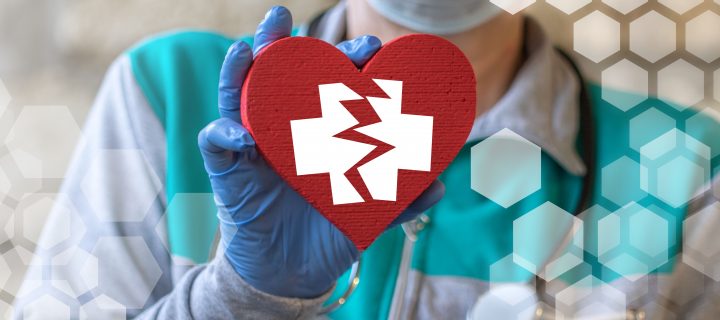COVID-19 can damage your heart tissues in multiple ways, some of which can be permanent.
The coronavirus is lessening its grip in some places across the world, but without a vaccine, the pandemic is not yet over. The novel coronavirus is still somewhat of a mystery. We do know that it is largely a respiratory illness. We also know it can do lasting damage to your lungs and kidneys, and in some severe cases, it can damage a person’s heart. According to Johns Hopkins Medicine, reports coming from China and Italy, where the virus hit early and hard, show that up to 1 in 5 patients diagnosed with COVID-19 experienced heart damage.
How exactly does COVID-19 attack? In general, when someone dies of the virus it is because their heart has failed to function. Other patients survive, but experience lasting damage. One route towards heart damage is a cytokine storm. This can happen in severe cases. The exaggerated immune response a person’s body generates can cause inflammation that hurts the heart muscle. This can result in ventricular arrhythmias, otherwise known as irregular heartbeats.
Related: Stay Sane: 5 Bits of Advice For Front Line Workers From the WHO
COVID-19 can also damage your heart when fluid builds up in your lungs’ air sacs. This can cause low levels of oxygen in your body. When this happens, your heart can have a more difficult time pumping blood through your body, and if there is heart disease present, this can be a deadly situation. You can develop damaged tissues in both your heart and lungs if you are not getting enough oxygen.
As with other viral infections, COVID-19 can also cause you to experience stress cardiomyopathy. This happens when your body releases catecholamines, a natural chemical that can “stun” your heart. The good news with this is that it can often correct itself, and your heart can heal once the infection has resolved.
In some ways, the effects of COVID-19 on patients with underlying conditions, (and sometimes in those without), can look similar to that of a heart attack. The heart can become overwhelmed, and a patient can experience chest pain, shortness of breath, and changes in their echocardiogram (EKG). The only major difference is that when these patients are given an angiogram, they do not have blocked arteries.
Related: Coronavirus vs Allergies: Know the Difference
Experts at Johns Hopkins advise that patients living with heart disease stay in close contact with their healthcare provider during the pandemic, and seek a follow-up exam with their cardiologist after recovering, if they contract the virus.
Staying healthy is the best way to avoid complications from COVID-19. It is still important to practice social distancing, to wear a mask when out in public, and to wash your hands with soap frequently, even as pandemic measures weaken. CNN reports that, as things open up, 10 states are now seeing their highest daily coronavirus case averages, ever. Avoid crowded areas to prevent catching the virus.
photo credits: Panchenko Vladimir/Shutterstock.com












